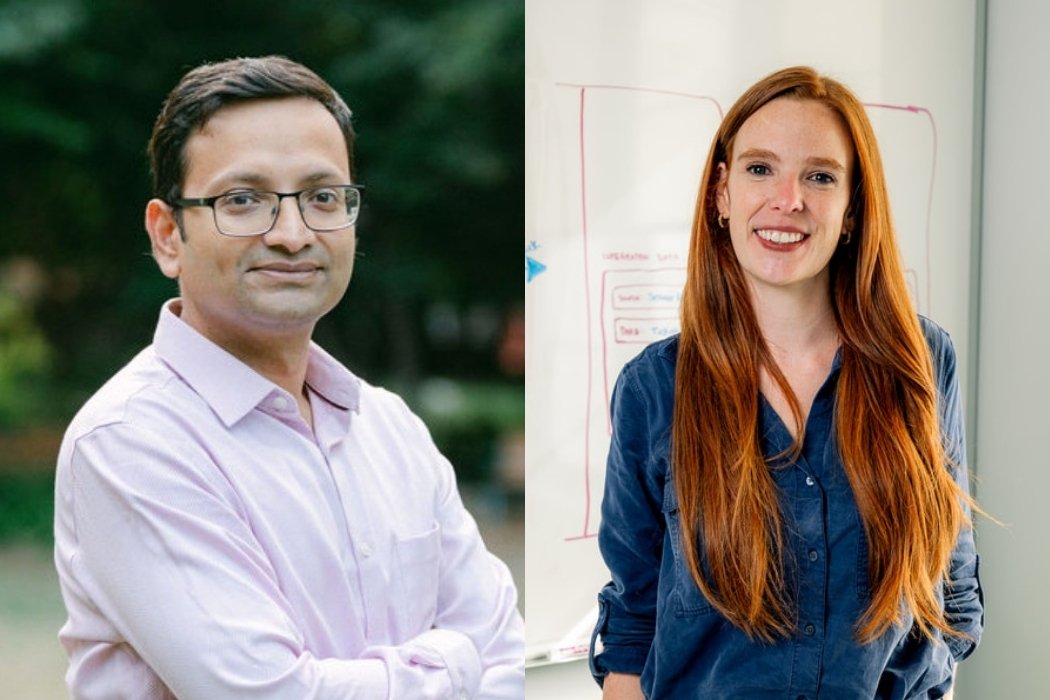Technology
Former Cohere Executives Launch Adaption Labs to Transform AI

Former executives from Toronto-based Cohere have announced the launch of a new artificial intelligence startup, Adaption Labs. This venture aims to develop AI systems that are both efficient and capable of continuous learning, fundamentally reshaping how users and businesses interact with technology.
Sara Hooker, who previously led Cohere Labs, will serve as the CEO of Adaption Labs. She will be joined by Sudip Roy, the former senior director of inference at Cohere, who will take on the role of Chief Technology Officer. In a post shared on X, Hooker emphasized that their mission is to create “adaptable intelligence” that evolves in real time, stating, “This will change how everyday users and companies around the world are able to shape and own AI.”
The focus of Adaption Labs is on “extremely efficient adaptation” in AI, as both Hooker and Roy highlighted in their public announcements. Roy noted that the future breakthroughs in AI will not solely rely on larger models but will instead prioritize systems that can adapt efficiently without the significant computational demands typical of conventional methods such as gradient descent. Gradient-based approaches, often used to train large language models (LLMs), involve optimizing a model’s parameters to minimize errors but can be resource-intensive.
To innovate in this space, Adaption Labs is looking to streamline its AI development processes to reduce both energy consumption and operational costs. Job postings indicate a focus on managing “severe compute budgets,” which will require the team to collaborate and innovate across various technological platforms.
Hiring Plans and Company Background
Although Adaption Labs is headquartered in California, the company is also hiring for hybrid roles in Canada and the United Kingdom. These positions include a brand designer, a design engineer, and an efficiency research engineer. This international hiring strategy reflects the company’s commitment to building a diverse and skilled team.
Before founding Adaption Labs, Hooker had a notable career at Cohere, where she contributed to advancements in multilingual capabilities and AI safety. She joined Cohere in 2022 after a five-year tenure at Google DeepMind and announced her departure earlier this summer, although she remained through September to oversee applications for Cohere’s Research Scholars program. Following her exit, Marzieh Fadaee was promoted to lead Cohere Labs.
Roy’s background includes significant experience at Google, where he worked as a research scientist for seven years before joining Cohere in 2021. At Cohere, he transitioned from director of engineering to senior director of inference, where he played a vital role in the development of AI technologies.
Adaption Labs marks a significant step forward for both Hooker and Roy as they aim to redefine the landscape of AI development. The need for more efficient AI training methods is becoming increasingly apparent, especially given the rising costs and energy demands associated with current industry practices. As the AI sector continues to evolve, the innovative approaches proposed by Adaption Labs could pave the way for a new era in artificial intelligence.
Founded in 2019 by former Google researchers, Cohere has emerged as a leading player in the AI space, developing LLMs that power various applications for businesses and governments. The company is currently valued at $7 billion USD, making it one of Canada’s most valuable private technology firms.
As Hooker and Roy embark on this new venture, the tech community will be watching closely to see how their vision for adaptable AI unfolds.
-

 World3 months ago
World3 months agoScientists Unearth Ancient Antarctic Ice to Unlock Climate Secrets
-

 Entertainment3 months ago
Entertainment3 months agoTrump and McCormick to Announce $70 Billion Energy Investments
-

 Science3 months ago
Science3 months agoFour Astronauts Return to Earth After International Space Station Mission
-

 Lifestyle3 months ago
Lifestyle3 months agoTransLink Launches Food Truck Program to Boost Revenue in Vancouver
-

 Technology2 months ago
Technology2 months agoApple Notes Enhances Functionality with Markdown Support in macOS 26
-

 Top Stories1 week ago
Top Stories1 week agoUrgent Update: Fatal Crash on Highway 99 Claims Life of Pitt Meadows Man
-

 Sports3 months ago
Sports3 months agoSearch Underway for Missing Hunter Amid Hokkaido Bear Emergency
-

 Politics2 months ago
Politics2 months agoUkrainian Tennis Star Elina Svitolina Faces Death Threats Online
-

 Technology3 months ago
Technology3 months agoFrosthaven Launches Early Access on July 31, 2025
-

 Politics3 months ago
Politics3 months agoCarney Engages First Nations Leaders at Development Law Summit
-

 Entertainment3 months ago
Entertainment3 months agoCalgary Theatre Troupe Revives Magic at Winnipeg Fringe Festival
-

 Politics1 week ago
Politics1 week agoShutdown Reflects Democratic Struggles Amid Economic Concerns





















